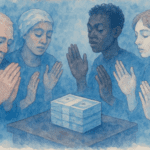The man at the bridge: a lonely battle against ethical collapse
We spend too much of our time on big issues and big personalities. We remain engrossed in ‘Yes-No’ politics and huge debates about governance and development. In all this grandstanding, we sometimes miss the fact that all great movements in history stem from small actions from small people. Nothing starts off as a big deal, until enough people start doing it.
And so I try, occasionally, to take this column from macro to micro, from large canvas to miniature. There are ordinary heroes and heroines in this country, people who do what is right repeatedly and successfully. Their voices and their example are lost to us because they do not court publicity and do not have public relations specialists deployed on their behalf. When I was a boy there was something called a Guinness Stout award that would pick out examples of individual fortitude and strength of character. These days we don’t seem to value personal decency.
You will allow me, therefore, to pick up the cudgels on behalf of the ordinary, decent, law-abiding, hard-working people of this land. They are drowned out by loud and raucous people with media trains behind them. From time to time I will tell you the story of individual heroes I meet.
I have one in mind this week. But first, some context. Nairobi is at last getting some new roads. I don’t mean just the massive new highways and flyovers that the Chinese are oh-so-kindly building for us. I mean also the very simple link and connector roads that should have been no-brainers for decades. For too long, we have not connected estates directly. We maintained a colonial radial model with roads emanating out of the city centre and too few options to get to point B from A. Everyone is forced to pile into the main radial roads, and the result is gridlock.
At last, however, there is something happening on this front. City planners have woken up and are now working to put in modest link roads to connect, for example, Westlands and Riverside, Lavington and Westlands, Kileleshwa and Kilimani. Just a few of these roads would make a huge difference to traffic congestion. Of course, many of the new roads remain half-done and some appear abandoned, for reasons best known to the authorities but perhaps familiar to most of us. Nevertheless, the road map of the capital city is finally changing.
It is one such road I want to take you to today. This road traverses the river valley between Kileleshwa and Caledonia. It requires a bridge to cross the river, of course; but the road planners, in their infinite wisdom, left the orginal single-lane bridge in situ, rather than build a new two-lane one. This means that there are inevitable bottlenecks down at the bridge every day, as traffic can only cross in one direction at a time.
This poses an interesting situation for Nairobi drivers, easily amongst the most boorish and ill-mannered in the world. Will we wait patiently for the other side to cross, or will we try to force our way in and create chaos for all? You know the answer, and therefore crossing this little bridge in rush hour is a nightmare.
The other day I came down the Kileleshwa side of the valley, and saw a long line of cars coming down the other way. I waited with a few other cars on my side, but the oncoming queue was unending and we were getting no chance to cross. Then, a minor miracle: a rare gentleman in a modest vehicle decided to stop and let us through! But it’s not that easy, is it? The more standard-variety buffoons behind him were shocked and appalled at his courtesy: they hooted and shouted loudly, overtook him quickly and prevented anyone from our side from crossing the bridge.
What amazed me is that the kind and courteous soul stood his ground. No matter how many pea-brains overtook him, he stayed patiently on the side and did not give up and join them. Eventually, another person saw the point of this courtesy, and also stopped and waited behind him. Soon, it became difficult for the cretins further back to overtake and cut in. And so the cars on my side of the valley were able to cross the bridge.
As I passed this rare road-user, I stopped to salute him. Were it in my power, I would have awarded him a national medal there and then. This gentleman, you see, lives to a value system. There are things he holds dear, and he doesn’t deviate from them. These values evidently include thinking of others and waiting your turn. And it doesn’t matter whether the world around him is cutting every corner possible – he knows what’s right.
If you’re reading this sir, I salute you again. When Kenya is eventually rescued from ethical ruin, it will be because a few good people like you stayed true.

Buy Sunny Bindra's new book
The X in CX
here »
Popular Posts
- The pause that saves usJune 8, 2025
- Where are you rushing to—your funeral?June 29, 2025
- How to spot a real thinkerJune 15, 2025
- The first push is the hardestJune 1, 2025
- Built the app, forgot the flowJune 22, 2025















